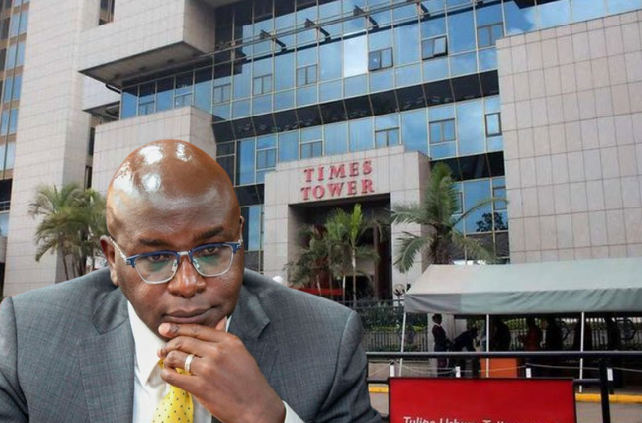In early 2024, reports about tax evasion began circulating within the Nairobi offices of Tecno Transsion Electronics (Pvt) Ltd, one of Kenya’s major mobile phone suppliers.
Reports surfaced regarding the company’s non-remittance of crucial employee tax deductions, specifically the Pay As You Earn (PAYE) tax.
These initial suspicions grew louder, drawing the attention of the Kenya Revenue Authority (KRA), which began to investigate.
By May 2024, KRA agents conducted a high-profile raid on Tecno’s headquarters at Cardinal Otunga Plaza.
Inside, they discovered a trove of documents allegedly proving undisclosed salary payments, unreported supplier transactions, and other forms of financial mismanagement.
Additionally, large amounts of cash, both in local and foreign currencies, were seized, suggesting that Tecno may have been avoiding traceable transactions to bypass tax obligations.
For the whistleblowers who had risked their careers to expose these malpractices, this raid symbolized the potential for justice.
Over the years, they had witnessed or endured abuses within the company, including tax deductions from salaries that never reached the tax authority, along with documented cases of labor violations and racial discrimination.
Many whistleblowers had anonymously approached journalists, bloggers, and oversight organizations in hopes of bringing Tecno’s alleged wrongdoings to light.
After the raid, they cautiously hoped that this would be the beginning of accountability.
However, as time passed, the momentum of the investigation seemed to wane inexplicably.
Despite the substantial evidence recovered in the raid, including documents and unaccounted cash, the KRA’s efforts to hold Tecno accountable appeared to stall.
The optimism among whistleblowers and observers faded, replaced by suspicion that KRA officials may have been compromised.
The abrupt halt of the investigation, despite the strong evidence at hand, raised concerns that some agents might be colluding with Tecno to bury the matter.
Reports from inside the company continued to reveal ongoing issues.
PAYE deductions are still reportedly being withheld from employees’ wages, yet not remitted to the government.
Employees report that undocumented foreign workers, primarily from Asia, continue to operate within the company without proper immigration clearances or work permits.
Kenyan staff allege that these foreign workers exploit their unregulated status to abuse local employees with little fear of repercussions, creating a hostile workplace characterized by discrimination and unchecked power imbalances.
The case has raised serious questions about KRA’s priorities and integrity.
Under the leadership of Commissioner General Humphrey Wattanga, the KRA has relentlessly pursued small and medium businesses, ensuring they meet their tax obligations.
However, the same intensity seems absent when dealing with major corporations like Tecno, whose alleged tax evasion has cost Kenya billions.
For many citizens, this disparity is infuriating. While ordinary Kenyans bear the brunt of heavy taxes, multinational corporations with vast revenues appear to escape scrutiny and accountability.
The scale of Tecno’s alleged tax evasion is staggering.
Unpaid taxes reportedly amount to Ksh 400 billion over several years, a sum that, if collected, could significantly support Kenya’s development goals.
This issue underscores a broader accountability gap, leading citizens to question whether KRA is genuinely committed to tackling tax evasion among large corporations or if they are selectively enforcing tax laws.
Commissioner General Wattanga faces mounting pressure to explain KRA’s inaction in Tecno’s case. For many Kenyans, the absence of justice in this situation fuels a sense of betrayal.
If KRA does not act decisively, public outrage could grow, particularly among those who diligently pay taxes and abide by the law.
Recent protests in June 2024 against corporate impunity and economic hardship are a clear indication of the people’s frustration, and a failure to address cases like Tecno’s may ignite even stronger backlash.
Journalists, and whistleblowers remain vigilant, determined to expose the truth and hold both Tecno and KRA accountable.
This scandal is more than just an isolated case of corporate misconduct; it is a test of KRA’s commitment to enforcing Kenya’s tax laws equitably, regardless of a company’s size or connections.
The outcome will signal to Kenyans whether they can trust their tax authority to uphold the law fairly or if the system remains rigged in favor of powerful corporations.





















Add Comment